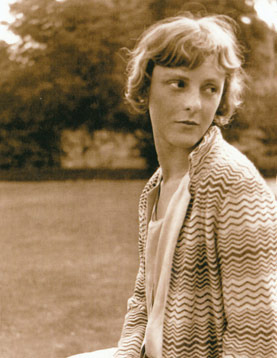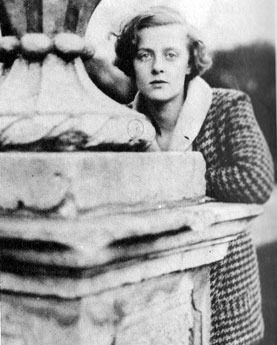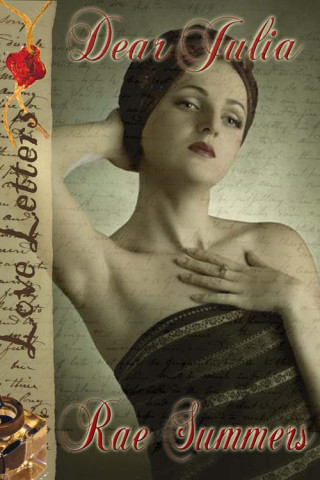Rae Summers's Blog, page 4
November 30, 2011
TWRP Holiday Promotions
This holiday season The Wild Rose Press are trying to increase their newsletter distribution, and are offering one day specials throughout the month to newsletter subscribers. There'll be discounts, gift certificates, free downloads, and more.
You can join The Wild Rose Press newsletter or The Wilder Roses newsletter for exclusive giveaways this holiday season!
TWRP is also giving away a free gourmet cookbook called The Garden Gourmet. You can find out more here.








November 22, 2011
‘Dear Julia’ has a cover!
'Dear Julia' has a cover!
October 26, 2011
‘Dear Julia’ update
The contract with The Wild Rose Press is signed, the cover artist has been briefed, the blurb has been written, and today the copy edits arrived in my Inbox. This is really happening!



 [image error]
[image error]

 [image error]
[image error]
'Dear Julia' update
The contract with The Wild Rose Press is signed, the cover artist has been briefed, the blurb has been written, and today the copy edits arrived in my Inbox. This is really happening!



 [image error]
[image error]

 [image error]
[image error]
September 29, 2011
Cocktails all around … I have news!
The Wild Rose Press has contracted my next 1920s novella, Dear Julia, as part of their Love Letters anthology. No release date or cover as yet, but watch this space ….








August 15, 2011
Whew!
Early afternoon yesterday I re-checked the email from The Wild Rose Press inviting submissions to the new Love Letters historical anthology – and discovered that the deadline wasn't today as I thought, but yesterday!
So after a great deal of stomach-knotting and head-aching, and thanks to my wonderful CPs who dropped everything to proof-read my final chapters, I hit send on Dear Julia shortly after midnight. I'm praying the email will be time-stamped at destination, and not in my time zone.
I really enjoyed writing this story. The heroine, Rosalie, is all sunshine and light, and the hero is dark and brooding. What a perfect pair they made – eventually!
Now I just hope the editors at TWRP enjoy it as much as I did.








July 22, 2011
Celebrities of the 20s: The Jungman Sisters
It was in DJ Taylor's book Bright Young People that I first encountered the Jungman sisters, and while recently dipping back into this delightful read, a social history of England in the 20s, I was inspired to blog about them.
Zita and Teresa (nick-named Baby) Jungman were the daughters of Dutch artist Nico Jungman and his English wife Beatrice Mackey. Both girls were still young when their parents divorced, and in 1918 their mother married Richard Guinness (distantly related to the beer family).
Their mother's remarriage opened up a whole new world for the girls; a world of wealth and privilege. Already blessed with good looks and good minds, they now also had the benefits of good connections and money. Armed with these advantages, the sisters took London by storm … literally.
For them and their friends, London in the 20s was a round of masquerades, scavenger hunts, pranks and parties. Or as Evelyn Waugh described it in his novel Vile Bodies: "Masked parties, Savage parties, Victorian parties, Greek parties, Wild West parties, Russian parties, Circus parties, parties where one had to dress as somebody else, almost naked parties in St John's Wood."

The Wilsford Group, photographed by Cecil Beaton (Zita is on the left of the group, and Teresa second from the right)
Cecil Beaton described Teresa as "like a white Gloxinia, with her Devonshire cream pallor and limpid mauve eyes." Older sister Zita was the quieter, deeper one, described by her friend Loelia Ponsonby as a "master of unusual ideas." Another friend, Edith Olivier, remembered that she "never moved with the herd." The sisters were leaders, not followers. They pioneered the famous treasure hunts that became all the rage among the Jeunesse Doree, and by 1930, when the next generation of Bright Young Things was already burning out, Zita and Teresa were living quiet, exemplary lives out of the spotlight.
And this is what I find so fascinating about these two young women: in the midst of all the partying and debauchery of the 20s, they remained true to their own beliefs and to themselves. Devout Catholics, they never compromised their principles. Both refused to get involved with divorced men, and though both sisters were later divorced themselves, they never re-married. Lord Longford once said of Teresa that she was "more like a nun, like a very friendly and fascinating nun."

Zita Jungman
Between parties, they attended mass and delivered meals to the needy. During the second world war, Zita worked as an ambulance driver in France, coming dramatically close to being caught by the Germans when France fell. After the war, they lived quietly and modestly together, for more than half a century.
For a more detailed inside glimpse into the lives of these two remarkable women, read this article by biographer Hugh Vickers, who met the sisters several times while researching his biography on photographer Cecil Beaton.
There are just two serendipitous moments in their lives I'd like to share:

Teresa Jungman
One of Teresa's greatest admirers was the novelist Evelyn Waugh. His other great unrequited love was Diana Mitford (one of the famous -and infamous- Mitford sisters, who married first Bryan Guinness, then Oswald Mosley). In 1985 Teresa's daughter Penelope married Diana's son, Desmond Guinness.
Later in life, Teresa and Zita moved to Ireland, to live in a garden cottage on the estate of Teresa's daughter and son-in-law. Both sisters lived to the ripe old age of 102, Zita dying at that age in 2006, and Teresa at the same age in 2010.
These kinds of coincidence would be unbelievable if written in a novel!








July 8, 2011
Weighing in
I wasn't going to dignify this article or this one with a comment, but since a local Afrikaans newspaper has also picked up and headlined the story, I've decided to weigh in on the debate with my two cents.
These aren't the first articles of their kind, and since the press has a long history of writing blatantly incorrect, sensationalist stories about romance novels (such as this laughable cheap pot shot) it's unlikely to be the last.
The debate will continue to rage for years to come, I'm sure, on whether watching violent films makes viewers turn violent, or reading romance turns people … well, romantic. (I notice crime novels don't get blamed for sending people into lives of crime, but that's another story!)
But it's not this issue that has me up on my soap box today, but rather the underlying issue as I see it: that in our contemporary, supposedly enlightened, society, women who expect their real life heroes to aspire to some sort of ideal are 'irrational' or 'dangerously unbalanced'.
It has become the norm in society for people not to take responsibility for their own actions. So we blame romance novels for the breakdown of marriages instead of admitting we might have failed. We blame unrealistic expectations for the fact that women value themselves highly enough to want to be treated well. I somehow doubt that it's the romance readers themselves saying their marriages broke apart because of what they read. More likely the disgruntled husband who doesn't want to admit that his wife left him because he's a drunken layabout.
I strongly believe that women should have high expectations of their husbands, just as men should have high expectations of their wives.
Marriage should be the place where we bring out the best in ourselves, not the worst. Our marriage partner should be the one person in the world we treat better than everyone else, not worse. And romance novels can teach us this. They set the benchmark of what we should aspire to, not a physical ideal (after all, those cover models often don't truly represent the characters inside the books!) but rather the values of a love so deep and enduring that it is worth striving for.
I will continue to proudly read, and write, romantic fiction, because I believe in a world in which women are taught to value themselves enough that they do not settle for less than they deserve. And for a world in which women who do so are not 'unrealistic' but rather the vast majority. I can guarantee it'll be a much happier world, and one filled with love and romance. Can you think of anything better?
Incidentally, if you're wondering what a romance writer really does look like, check out this brilliant response by Julie Cohen.
And thanks to Lorraine Minx for pointing me to this interesting rebuttal.








July 3, 2011
Two Lips Reviews
I'm in day job hell right now, with a film shoot occupying every waking moment and keeping me from writing, so what bliss to wake up on a sunny Sunday morning to this review.
A huge thanks to Mac at Two Lips Reviews for her wonderful words.
Now, let's just hope my publisher of choice puts the cherry on the cake by replying soon with good news on Innocent Abroad.




















